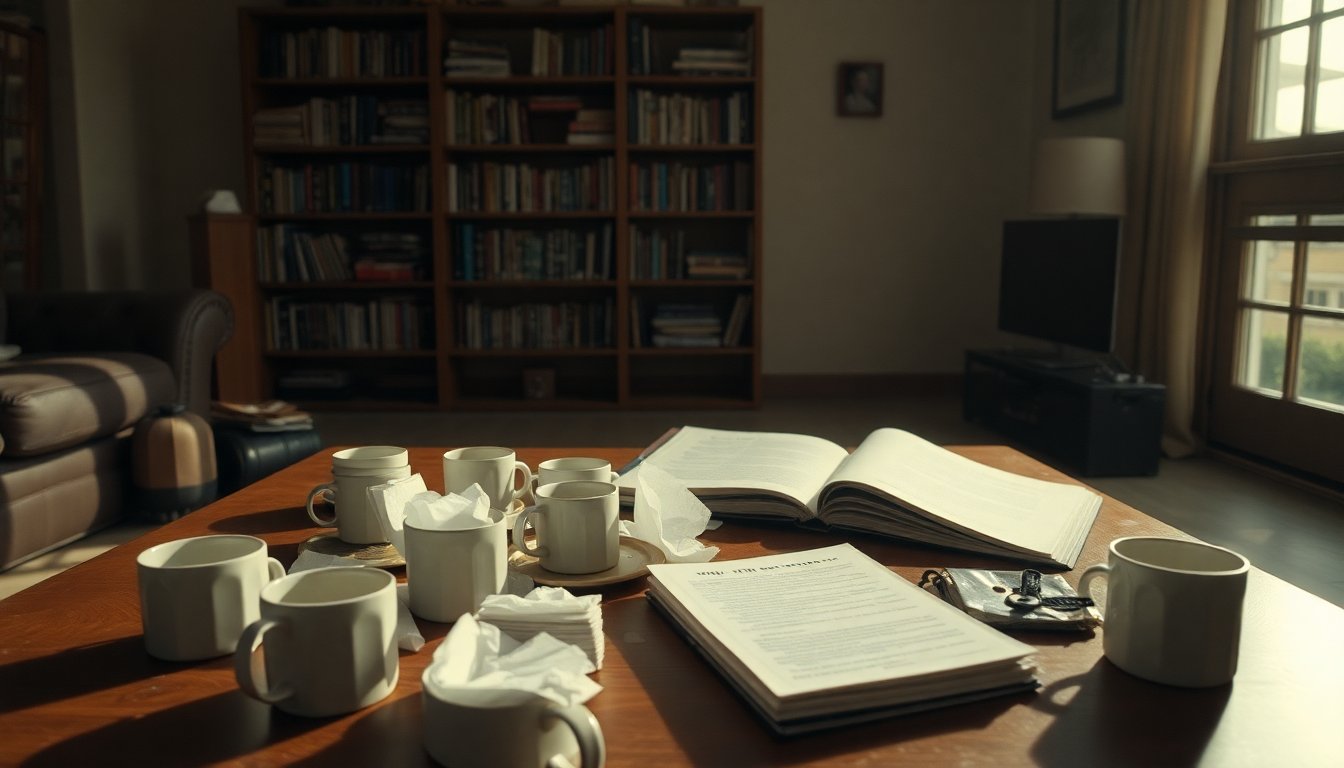Table of Contents
Bradley Cooper explores humor in new film
Bradley Cooper’s latest film, Is This Thing On?, marks a shift toward comedy following his previous dramatic works. The film premiered at the New York Film Festival and features actors Will Arnett and Laura Dern as a couple grappling with the complexities of separation.
While addressing the serious theme of divorce, the film utilizes humor to transform personal struggles into relatable experiences. This approach allows for a unique exploration of the emotional landscape surrounding relationships.
Setting the stage for separation
The story follows Alex and Tess Novak, a couple who have shared two decades in a suburban home in New York. They are the parents of two ten-year-old boys, often referred to as “Irish twins” by Alex, who works in the finance sector. Meanwhile, Tess has stepped back from her career as a high-achiever to concentrate on parenting.
The film begins with the couple facing the challenge of finding the right moment to inform their children about their separation. Their efforts are characterized by awkwardness and a clear sense of uncertainty, reflecting the complex emotions many experience when a marriage begins to dissolve. As Alex adjusts to life in a minimalist apartment in the West Village, he makes a significant choice to purchase a distinctive blue-and-white VW van, marking the start of his new chapter.
Finding solace in comedy
As Alex embarks on a new journey, he unexpectedly discovers the world of stand-up comedy. On his first night alone in the city, he visits the Olive Tree Café, a renowned venue that serves as a gateway to the local comedy scene. Faced with a cover charge he cannot afford, he impulsively volunteers to perform at an open-mic night, setting the stage for both personal exploration and comedic insight.
Comedy as a therapeutic outlet
What unfolds on stage is more than an attempt to entertain; it is a means for Alex to process his feelings about his failed marriage. His transition from a conventional finance professional to a stand-up comic appears seamless, as he draws from his life experiences, finding humor in the very situation that has turned his world upside down. The presence of other comedians, who reflect their real-life personas, enriches this comedic backdrop.
The new norms of comedy
This film highlights how comedy has evolved into a platform for sharing personal narratives. Stand-up has become a space for vulnerability, allowing performers to transform their pain into laughter. Audiences witness Alex’s journey not as a desperate bid for success in the comedy world, but as a therapeutic endeavor that resonates with many who find themselves in similar circumstances.
Emotional depth within humor
Cooper’s direction ensures that the film retains an emotional core amid the laughter. Alex’s comic journey reflects his struggles and the complexities of his relationships. His dynamic with Tess stands out; she is portrayed with a sense of longing and regret, and her background as a former U.S. Olympic volleyball player adds depth to her character.
Moments of serendipity, such as when Tess unexpectedly attends one of Alex’s performances, reveal their shared history before an audience. This scenario acts as a form of unintentional couples therapy, humorously dissecting their private life on stage and fostering a deeper understanding of their separation.
Supporting characters and relationships
Cooper enhances the film with a rich array of supporting characters, each adding depth to the theme of navigating relationships. Alex’s brother, Balls, portrayed with comedic skill by Cooper himself, offers a humorous yet insightful perspective on familial ties. The dynamics between Alex’s family and friends introduce complexity to the narrative, highlighting the significance of community during personal challenges.
Ultimately, Is This Thing On? provides a fresh perspective on divorce, artfully mixing humor with heartache. Although the film does not deeply explore the darker facets of separation, it effectively illustrates how individuals manage change through laughter. By turning the struggle of a marital breakdown into relatable comedy, Cooper encourages viewers to reflect on their own experiences with love and loss.


